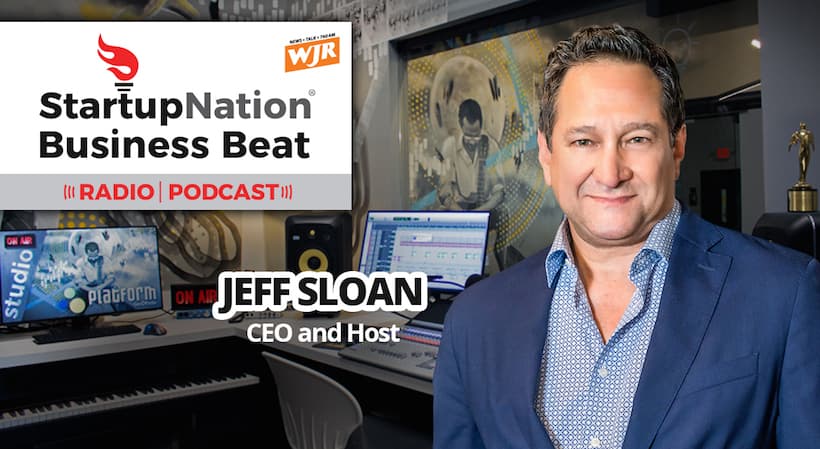Just six short months after it went live, Quibi, a mobile streaming service focused on providing short-form video content, declared it was shutting down.
What went wrong?
Jeff breaks it down in this morning’s WJR Business Beat, noting that Quibi’s failure underscores the fundamental premise that if you don’t have a sound business model to pursue, that targets a clear market want or need, you are doomed.
Tune in below:
StartupNation exclusive discounts and savings on Dell products and accessories: Learn more here
“Look, if you’re an entrepreneur with a business idea and your business model is going to require a fee to be paid when there is a myriad of dynamic and satisfying free options, you better offer a premium value.”
– Jeff Sloan
Tune in to News/Talk 760 AM WJR weekday mornings at 7:11 a.m. for the WJR Business Beat. Listeners outside of the Detroit area can listen live HERE.
Are you an entrepreneur with a great story to share? If so, contact us at [email protected] and we’ll feature you on an upcoming segment of the WJR Business Beat!
Good morning, Paul.
Quibi, the six-month old mobile streaming service focused on providing short-form video content in exchange for a monthly subscription fee, starting at around $5 a month, was officially declared dead last week. OK, well, lots of startups go bust, right? Well, yes, they do, but this one was different.
You see, Quibi was founded by Jeffrey Katzenberg. He was chairman of Walt Disney Studios, among other profile leadership roles. Quibi raised an enormous amount of startup capital: how about 1.7, 5 billion? It was led by one of the most decorated and acclaimed CEOs of the modern startup era, Meg Whitman. She led eBay and Hewlett Packard previously, and they spent nearly a hundred million dollars on advertising and marketing, including a Super Bowl commercial.
Really? And it failed within six months of launching? Yes, it did. What happened?
Well, let me break this down. This is a classic case of Hollywood hubris gone wrong, and it underscores the fundamental premise that if you don’t have a sound business model to pursue, that targets a clear market want or need, you are doomed.
No fancy founders, CEO or billions in funding can save an idea that is misaligned with what the market wants or needs. Specifically, in the case of Quibi, the business model was based on converting free trial viewers after 90 days from free to paid users, but only 10 percent did so.
Why? When consumers can turn to free mobile video services like YouTube, Twitch and TikTok, it’s hard to convince people they need to pay for content that was mediocre at best.
The lesson here?
Look, if you’re an entrepreneur with a business idea and your business model is going to require a fee to be paid when there is a myriad of dynamic and satisfying free options, you better offer a premium value. One that is worth paying for. Quibi failed to do that. You cannot. Do your homework. Make sure you do, in fact, offer a premium value that justifies the spend you’ll be asking from the market. There is simply no substitute for doing all you can to make sure your idea is sound.
After all, you don’t want to blow through 1.7 billion in six months like Katzenberg and Whitman just did, do you? Of course, you don’t. Make sure your business model is sound before you take to the market.
I’m Jeff Sloan, founder and CEO of StartupNation.com, and that’s today’s Business Beat on the Great Voice of the Great Lakes, WJR.






